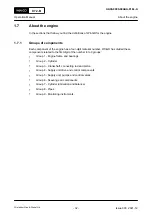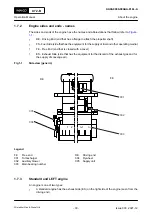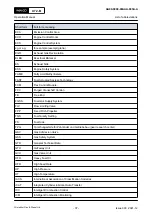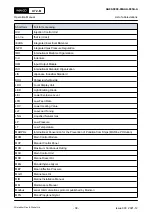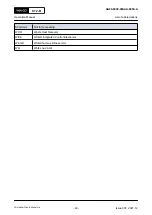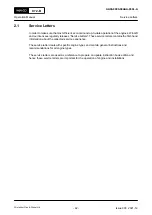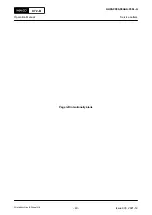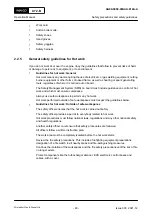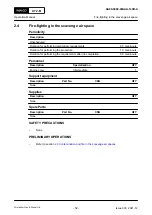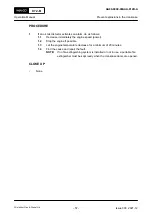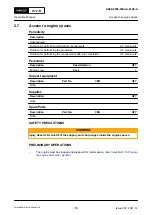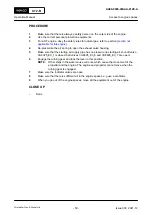
2.2
Safety precautions and safety guidelines
2.2.1
General safety precautions
The aim of this book is to give correct information about operation and maintenance of the engine.
It is important to take the maximum safety in the engine room. All the engine room staff must follow
these general safety precautions and safety guidelines given below as usual procedure.
Use the data given below as a guide to the personnel.
•
Lighting
Make sure that there is good permanent lighting available at applicable places in the engine
room.
Make sure that the sufficient number of portable lamps available at different locations in the
engine room.
Make sure that special lamp is available to insert through the scavenge ports.
•
Cleanliness
Keep the engine and engine room as clean as possible. Also keep the area above and below
floor plates clean. Keep the electronic control boxes on the rail unit clean and dry.
Make sure that no dust, grit, sand or chemical vapor can go into the engine room. This will
help to prevent a fire in the engine room.
If there is a risk of grit and sand blow into the engine room when the ship is at port, ventilation
must be stop, skylights and engine room door must be close.
Do not do weld or other work near the engine except if done in closed and protected
environment, this will prevent spread of grit or swarf particles. Make sure that the
turbocharger intake filters are covered.
Keep the external part of the engine clean and maintain the paintwork to find the leakages
easily.
•
Fire
Make sure that fire-fighting equipment is available in the engine room. Keep covers and
casings of the engine closed until the engine is sufficiently cool.
Clean the area around the relief valves free of oil, grease etc. This will prevent risk of fire
cause by hot air or gas when the relief valves are open.
Do not weld or use naked lights in the engine room. Make sure that no explosive gases,
vapour or liquids are available which can cause fire or explosion.
Be careful when using paint and solvents which has a low flash point. There is a risk of fire
and explosion.
Be careful when the crankcase doors are open before the engine is at suitable temperature,
weld or use of naked flames can cause risk of explosion and fire. Same is applicable to oil
tanks and spaces below the floor at the time of inspection.
Make sure that the emergency exits are clearly marked and easy to access.
Do not use the porous insulating materials soaked in oil due to leakages. These materials
are highly inflammable and must be replace with new materials.
X72-B
AA00-0000-00AAA-012A-A
Operation Manual
Safety precautions and safety guidelines
Winterthur Gas & Diesel Ltd.
- 44 -
Issue 003 2021-12



